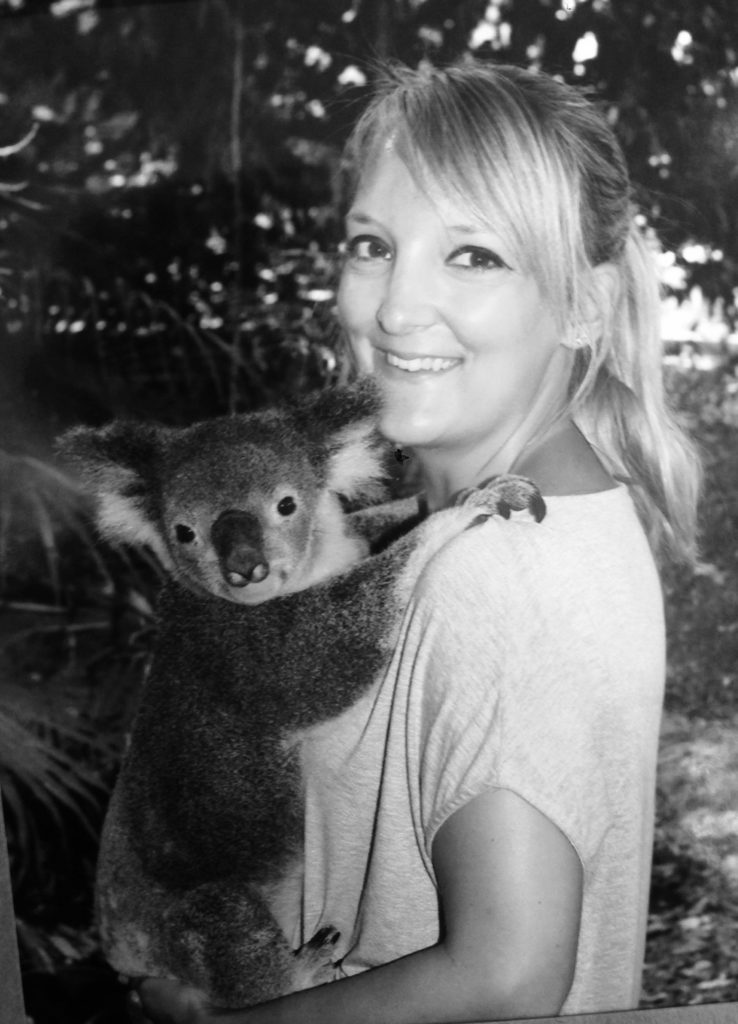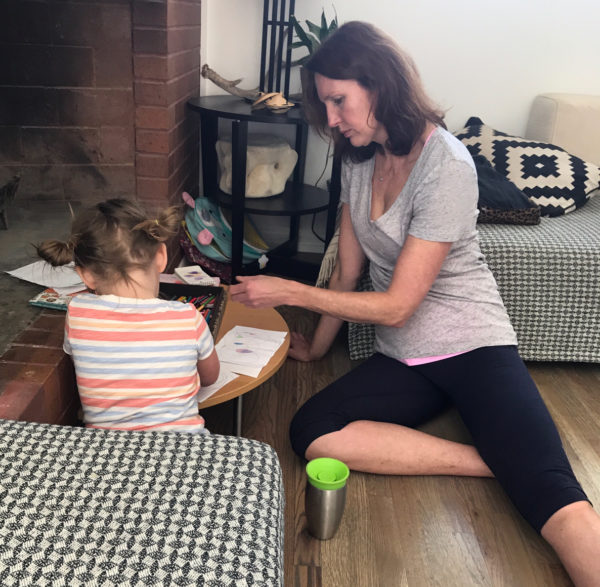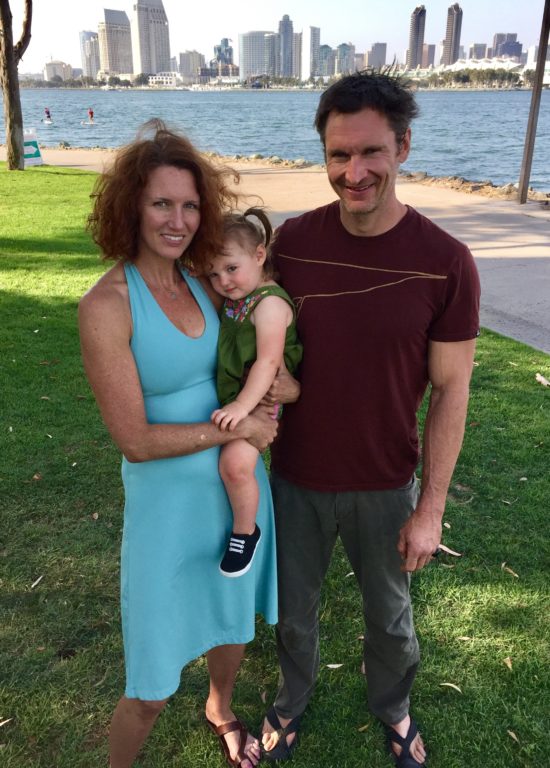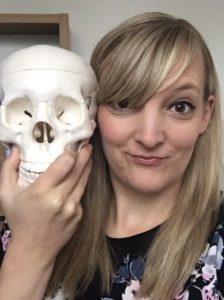Interviews
Welcome to another installment of Interviews with Real Female Physicians. The goal of this series is to share their story so that you, the reader, may learn and be inspired from their experiences – good and bad. We all come from different backgrounds and have different situations. Some of you are married, some are not, some with kids, some with blended families. Let’s show other women that any of these can work financially! I am super excited to share this interview today with Dr. Nikki Ramskill, she's a doctor in the United Kingdom! I met her at FINCON18 and she is up to some awesome stuff across the ocean as The Female Money Doctor. Try to read the interview with a british accent!
Tell us about yourself:
 My name is Dr Nikki Ramskill, and I am a UK-based doctor training in general practice with just under 18 months left to go before I am a fully-fledged independent practitioner! I have been a doctor since 2009, and tried out Obstetrics and Gynaecology for 4 years before deciding it wasn’t for me. Switching between specialties actually wasn’t that hard to do logistically, but mentally it was more difficult to let go. Having experience of a specialty however has actually made being in general practice a lot easier! The stressors are different, but nothing will ever compare to the stress of labour ward on a busy shift. My advice to medical students looking to pick a specialty is to do one that is right for you and the lifestyle you wish to lead. I want more freedom and control in my life, and working as a hospital doctor in the NHS does not allow for this. Becoming a GP allows me to live a life I want – I can literally design it anyway I wish to, and it will change as I get older and my responsibilities change. I have never picked my specialties based on how much money I could earn. Chasing money makes you miserable in the end. Chose the specialty that agrees with your personality, and one you can enjoy, even when it gets hard. And if you get it wrong, just switch! When I chose to become a GP, I moved out of London, and I now live in Milton Keynes – a city that is about 1 hour north of London. I live with my boyfriend Tom and we don’t have any children yet. I decided to move because it made more financial sense to do so, plus, being a GP out of London is much better than being a London-based GP in my opinion. Living in London is EXPENSIVE, and part of the reason why I accumulated debt going through medical school and afterwards was to try and keep up with everything that was going on. I wanted to do it all, and as a result, overspent. Thankfully now living outside of London, the cost of living has improved, and I can do a lot more with my pay check! In my spare time, I blog about money as The Female Money Doctor. Being in debt has made me realize how hard life is trying to pay it off as well as do all the things I want to do. I could see in my patients the same struggle, but with the added concern of taking time off to get better. This led me to wanting to write about my experiences so others can learn from them and avoid doing the same.Writing about this topic is a huge passion of mine and I love spending time creating things to help others. It gives me a great outlet from the day job and works another side of my brain!
My name is Dr Nikki Ramskill, and I am a UK-based doctor training in general practice with just under 18 months left to go before I am a fully-fledged independent practitioner! I have been a doctor since 2009, and tried out Obstetrics and Gynaecology for 4 years before deciding it wasn’t for me. Switching between specialties actually wasn’t that hard to do logistically, but mentally it was more difficult to let go. Having experience of a specialty however has actually made being in general practice a lot easier! The stressors are different, but nothing will ever compare to the stress of labour ward on a busy shift. My advice to medical students looking to pick a specialty is to do one that is right for you and the lifestyle you wish to lead. I want more freedom and control in my life, and working as a hospital doctor in the NHS does not allow for this. Becoming a GP allows me to live a life I want – I can literally design it anyway I wish to, and it will change as I get older and my responsibilities change. I have never picked my specialties based on how much money I could earn. Chasing money makes you miserable in the end. Chose the specialty that agrees with your personality, and one you can enjoy, even when it gets hard. And if you get it wrong, just switch! When I chose to become a GP, I moved out of London, and I now live in Milton Keynes – a city that is about 1 hour north of London. I live with my boyfriend Tom and we don’t have any children yet. I decided to move because it made more financial sense to do so, plus, being a GP out of London is much better than being a London-based GP in my opinion. Living in London is EXPENSIVE, and part of the reason why I accumulated debt going through medical school and afterwards was to try and keep up with everything that was going on. I wanted to do it all, and as a result, overspent. Thankfully now living outside of London, the cost of living has improved, and I can do a lot more with my pay check! In my spare time, I blog about money as The Female Money Doctor. Being in debt has made me realize how hard life is trying to pay it off as well as do all the things I want to do. I could see in my patients the same struggle, but with the added concern of taking time off to get better. This led me to wanting to write about my experiences so others can learn from them and avoid doing the same.Writing about this topic is a huge passion of mine and I love spending time creating things to help others. It gives me a great outlet from the day job and works another side of my brain!
Did you graduate with student loans? How much & what are the interest rates?
Being in England, student loans are a little different. We firstly don’t have to pay as much as tuition as you do in America – our students currently pay up £9,250 per year, plus we don’t have do any pre-medical degrees. We can apply from age 18 straight out of school. Secondly, we don’t have to start paying our loan back until we reach £18,330 per year in income. If we don’t reach this level, we don’t pay. Any remaining debt is then wiped at age 65 or when we die (whichever is sooner). So basically, there is no pressure on graduates to start paying back immediately (or even at all). It is also not calculated in mortgage affordability, so it doesn’t affect buying our first homes. Payments come out of our personal pay cheques, so partners don’t have to pay on our behalf when we get married. I took out a full loan when I was at medical school. I came out with £50,000 worth of debt.
I’m now down to £20,000. I don’t plan to pay this off early because my other debts come first. My interest rate is currently 1.75%.
Financial aspects of kids
I don’t have kids, but I would like them when I finish training. My plan would be to start them saving and investment accounts as soon as they are born to give them a good head start in life. I don’t plan to waste money on private education. We have good schools on the whole here, and hiring private tutors is a much more cost-effective way of giving them an educational boost! Plus, I like the fact that state schools provide an education on how to get along with others – more diversity from different backgrounds is a great way to educate kids on the differences between people in my opinion.
Financial aspects of marriage. 
Are you married?
I am not currently married, but we are planning to. We agree on finances – my boyfriend tends to reign me in, and I push him out of his comfort zone, so we balance each other out like that! My boyfriend knows that my earning potential is far higher than his and he is ok with this. He jokes about being a “house-husband” one day, but I’d prefer to raise children together. We differ on whether to hire help like a weekly cleaner, as he feels we should both be cleaning our own house. In all honesty though, I feel it is a waste of my time, so I’m hoping to eventually win him over on this!
Financial mistakes:
I have made some huge mistakes in the past. I think my biggest one was allowing an ex-partner to control all of my money. I had to ask him for an “allowance” which was humiliating and made me feel worthless. My first pay cheque as a doctor was spent buying a new TV that he wanted. I could never go on girly holidays on my own, or make purchases without his say-so. When we broke up, I lost everything – including any claims to a flat we shared in London. I had paid into it for 4 years but never saw a penny of it. BIG MISTAKE! I like the idea of having a pre-nuptial agreement now, but I plan never to be in this situation again. I have full control of my own finances now, and only a small bit of my money goes into a joint account with my partner. Lesson learned!
General Finances
I will be financially independent when my net worth reaches at least £750,000. This will (in theory) give me enough of a monthly buffer so that I will never have to work again (if I choose not to), AND take my partner out of work too. I could free myself at a much lower net worth than this, but I want to have breathing room to allow for changes in the economy, and to afford a decent standard of living, plus having money to go travelling with which is something I love doing. I also don’t want to leave my partner behind to do all the work! I got to this number by calculating how much money I would need, growing at 8% per annum (on average) so that I could then start to live off of the money safely, taking a years-worth of income out at a time, and leaving the rest to keep accumulating. As I accumulate money, I’ll evaluate this number and revise it as necessary. There are new blogs coming out all the time with different opinion and ideas, so I’m flexible enough to change if I need to! In all honesty though, I don’t think I would retire at this point, but it would give me the security of knowing I could go part time or do something else entirely if I wanted to. Besides, I’m still a long way off this number. I was massively in debt when I started on this journey, but now I’m close to having a net worth of 0 (it’s about 1-2 years away). My net worth is currently in the negative, but I have improved it by over £50,000 in the past 3 years. My salary is just over £36,000 per year, so as you can imagine, this is a slow process!
Who handles the finances in your relationship? Are you DIY or do you have a financial advisor?
I do my own investing without the help of a financial advisor – to be honest, I don’t currently have enough in assets to justify employing one anyway (and I doubt they’d be interested!).
How are you saving for FI/retirement?
I currently put money into my pension at work (which I am not allowed to add more to or move to another provider because it is public money). I also have a stocks and shares ISA that I invest in – I am allowed up to £20,000 per year tax free, so my first plan is to fill this as much as possible while also paying off debt. I have a nice mix of diversified index trackers and exchange traded funds. I have both UK and US equities, plus corporate bonds, gold and equities in emerging markets. I rebalance once a year in January.
Do you have (long term) disability insurance? Life insurance? Umbrella?
My partner has life insurance because he currently owns our house. When I go onto the mortgage next year, I’ll look into buying life-insurance then.
One thing you wish you knew: 
Would be learning how to invest sooner.
Any parting words of wisdom?
There are no quick fixes to finance. It takes a decision, then a commitment to get yourself on track. Once the decision is made, consistency is key. It may feel like you’re getting nowhere, but slowly you are. Celebrate the small milestones along the way and give yourself credit when its due! Above all, have fun – this does not need to be stressful!
Fun Fact!
I was born on April 23rd – the same day that is said to be Shakespeare’s birthday, and coincidentally, the same day he died. It’s also St. George’s Day – the celebration of the patron saint of England!
And finally, where can people connect with you?
Visit my website @ thefemalemoneydoctor.com. I'm also on social media: @femalemoneydoc on Twitter and Instagram andd on Facebook. And finally, you can always send me an email at hefemalemoneydoctorinfo – at – thefemalemoneydoctor.com.
And … that's a wrap! If you're interested in doing this please send me an email – I'd love to hear from you!
Well I hope you enjoyed our first British physician interview! Go tell your physician colleagues over in the U.K. about Nikki and her awesome website!
Read MoreWelcome to another installment of Interviews with Real Female Physicians. The goal of this series is to share their story so that you, the reader, may learn and be inspired from their experiences – good and bad. We all come from different backgrounds and have different situations. Some of you are married, some are not, some with kids, some with blended families. Let’s show other women that any of these can work financially! So let's introduce our next woman physician rockstar – Dawn.
Tell us about yourself:
I’m a 44 year old anesthesiologist living with my husband, almost 3 year old daughter, and almost 10 year old whippet dog in Salt Lake City, UT. I’ve lived in Salt Lake for 17 years, initially drawn here by a passion for rock climbing and outdoor sports, but my husband and I are originally from Arizona. We met in college and both pursued engineering degrees. After some experience working as engineers, we both decided to take different paths (he chose JD and I chose MD). I’ve been an attending anesthesiologist for over 7 years now. My practice is unique in that I am a non-academic faculty member of a large group at an academic hospital. I do all my own cases and see a wide variety of patients, but I have no call, weekend duties, research, or administrative duties. I also provide anesthesia for our university fertility clinic, a “side gig” which is near and dear to my heart because I was an IVF patient at the same clinic! I currently work two full days in the OR and 1-2 mornings a week at the fertility clinic.
Did you graduate with student loans?
My husband and I were both fortunate to have full-ride scholarships to a state university for our undergraduate degrees. He also attended the same state university for law school, where the tuition was heavily subsidized because his father works there as a professor. I attended a state university for medical school and did take out some loans, but my husband was working as a lawyer during that time so he was able to provide a majority of the financial support.
How fast (or not) are you paying them off?
Upon finishing residency, I had a relatively low amount to pay off. Despite a ridiculously low interest rate, I paid the loans in full within a few years of working as an attending.Financial aspects of kids
When did you have them?
For years my husband and I spent all our free time rock climbing and traveling, and we weren’t sure that we wanted to have children. That changed somewhere mid-residency, around the time that I turned 35. Suddenly, we felt differently about wanting to add to our family. Only I was experiencing some unusual symptoms and hadn’t had a period in over a year, all of which I attributed to the stress of being a resident. To make a long story short, I embarked on a diagnostic odyssey that lasted several months, included FMLA time, and culminated in the finding of a large pituitary adenoma. After resection (still during residency), complications, ICU stays, going on lifetime pituitary hormone replacement, and in vitro fertilization, I finally had my “miracle baby” at age 41!
Are you planning to fund their college expenses?
Although we were quite late at becoming first-time parents, we felt very mentally – and financially – prepared for the arrival of our daughter. In fact, around the time she was born, we started reading about the Financial Independence movement and realized that we were already financially independent. We were living well below our means and were used to flexible spending – being able to modulate our lifestyle and live cheaply if necessary – from many periods on the road as climbers in our twenties. In addition, we have a relatively frugal do-it-yourself type of outlook on most things.
Regarding our daughter, we opened a Utah 529 Plan at her birth, and we’ve been funding it modestly ever since. We also encourage our parents to give money to her 529 instead of giving cash (or other) gifts whenever possible.We could put more into her 529 each year, but we currently elect to fund it with the minimum yearly contribution necessary to get tax credits and invest our money in other ways. Although we see the importance of the 529 fund, we don’t plan to send her to private schools and we don’t plan to demand that she attend university. With the vast entrepreneurial opportunities brought by the explosion of the internet and social media, she could end up finding something she loves to do without a college degree. By that time, there should be a considerable chunk of $ in the account, but we hope to teach her lots of lessons about financial responsibility and value along the way. Both of us attended public schools and state universities for all of our education, and in the end, we had the same (or better) career opportunities as those who spent tens of thousands of dollars on their respective degrees.
What are your child care expenses? Are your kids in private or public school? What is the cost including after care if needed.
Although my husband and I both work part time, we spend money on opportunities for our daughter to have abundant social interactions with other children and adults. She currently attends one conventional full-day preschool daycare program two days a week and one decidedly unconventional outdoor play-based preschool two half-days a week. We love that she gets this mix of home time and away time, and we were never interested in hiring a nanny who is with her all day, every workday. Mornings when I work in the OR can be fairly hectic, so we also hired a regular babysitter who comes to our house for two hours on those mornings. She plays with, feeds and dresses our daughter before taking her to her preschool. It’s so helpful!
My husband and I both try to make our days off coincide with my daughter’s half-day outdoor preschool. That way, we get some personal time to spend alone or with each other while she’s playing in the forest. Also, we are very savvy about using our gym’s short-term daycare hours on the other days of the week. For all these permutations of childcare, I estimate that we pay about $1000-1200 per month. Every penny is worth it. Eventually as she gets older, we hope to convert all her preschool time to the outdoor play-based program, as it is more in line with our educational values. We also plan to unschool her when she reaches elementary school age, while continuing to expose her to whatever sports or artistic programs she takes an interest in.

Financial aspects of marriage
Are you married?
I’ve been married to my husband for 19 years, and we started dating near the beginning of college. We’ve truly “grown up” together and become more aligned in our values over the years.We have separate bank accounts. We dated for a long time before getting married and just never merged the accounts. There’s no regimented system, but we transfer money back and forth between accounts and take turns paying for various expenses depending on account balances. He makes more money than I do, but as an owner of his own law practice, his income is quite variable. He also allocates retirement money differently than I do, given that he is a business owner and I am a W2 employee. While we decide on big-picture money management issues together, he actually manages all of our finances in a Quicken program that combines all of our money transactions. He also does the taxes every year.
Do you and your husband agree on finances?
At first, my husband and I had very different views about spending. Overall, we agreed on the larger financial priorities, but I was much more of an emotional spender and he very logically saw money as “life energy” early on – before it was trendy. I wrote extensively about this in a recent post on my blog; my conversion to a more minimalist/valueist spending style didn’t happen until I became a mother and saw the simplicity and decreased stress that it brought to our household.Are you the breadwinner?
Interestingly, we’ve taken turns being the “breadwinner” of the household. I made the money straight out of undergrad that allowed us to buy our first home while he was in law school. Later, the tables turned when I was in medical school and he was establishing himself as a lawyer.Have you experienced a financial catastrophe?
When I was fresh out of undergraduate school working as an engineer, I made the mistake of succumbing to lifestyle inflation and spending most of my earnings rather than saving them. I elected to rent an expensive apartment and spent lots of money on clothes – things that don’t matter as much to me today. I had a 401k with corporate matching, but I didn’t even come close to maximizing my pre-tax contributions. I wish I had done this and continued to “live like a college student”, because that fund would be worth a lot more today (20 years later)! Now I make the maximum contributions to my retirement accounts and never even see the money before it’s allocated.
While I’ve been fortunate to not suffer a financial catastrophe, I have experienced a significant health crisis (see above). It changes your outlook on everything in your life – what’s important to you, how you want to spend your time, your money, etc. Because of my tumor, I no longer qualify for individual disability insurance, but we basically self-insure. We’re flexible enough in our spending to be able to deal with such a financial loss. We self-funded $50k in IVF fees over a three–year period by being financially flexible and cutting back on some unneeded expenses.

General Finances
What’s your FI (financial independence) number?
We consider ourselves FI by the 4% rule with a very reasonable yearly living amount, but neither of us are actually retired. We both enjoy our respective work in the capacity that we’re currently doing it – very part time and with ample vacation sprinkled in. The one thing we’d like to do in the near future is travel more with our daughter. My husband’s work is completely location-independent, but mine currently is not. So I might be adjusting things soon to accommodate for that. This may mean taking a sabbatical from my current position, going seasonal, or doing some locum tenens work. Also, I hope to grow my blog and social media presence, and potentially do more writing and speaking gigs.What is your net worth? How are you saving for FI/retirement?
Overall, our asset allocation is roughly 60% equities, 30% real estate, 10% cash. Simplicity is my theme word; it’s what I’m constantly striving for in many areas of my life, finances included. We are completely debt free, we self-insure for life and disability, we recently downsized our living space and also sold one of three properties. Most of our money is in the VTSAX index fund, and we don’t look at the gains and losses too frequently.What does FI/retirement mean to you? What does it look like?
I see our FI as a combination of good financial decisions, high income potential for both partners from a young age (given that we started out as engineers), and the ability to spend flexibly. Not everyone will have all of these factors in their FI equation, but figuring out your financial strengths and weaknesses can help to clarify and refine your own path to FI.
Any parting words of wisdom?
Tell readers a fun/random fact about you
When I meet people, they always want to know how tall I am. I’m 6’1” with no shoes on. And I have rock climbed in seven different countries.
And finally, where can people connect with you?
I blog at PracticeBalance.com. I’ve been writing more about money issues (mainly the mindset side of things) after meeting Bonnie this year, so check out my most recent posts and then work backwards from there to read about wellness, work-life balance, parenting, anesthesia, infertility… you name it. I’m also on Instagram @PracticeBalance, Twitter @DLBakerMD, and Facebook as Dawn Baker.
And … that's a wrap! If you're interested in doing this please send me an email – I'd love to hear from you!
I'm so excited more women physicians are blogging about money and living a life of their own choosing. Definitely head over to Dawn's blog!]]> Read More- « Previous
- 1
- 2






